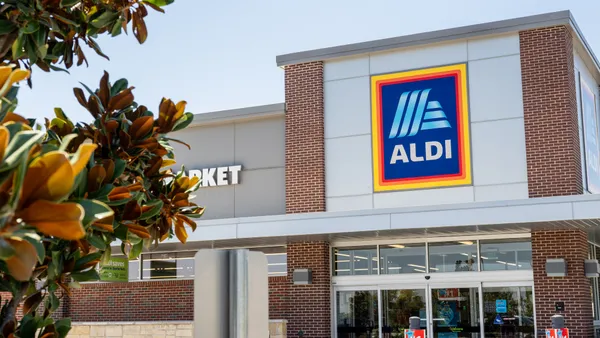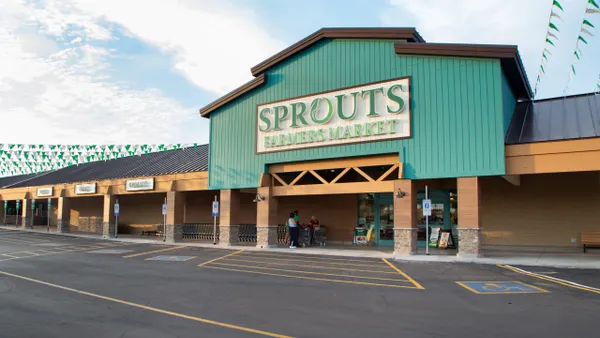Dive Brief:
- Dean & DeLuca filed for Chapter 11 bankruptcy late Tuesday in U.S. Bankruptcy Court in Manhattan, Bloomberg reported. The company hopes to be able to resume operations after shoring up its finances.
- In its bankruptcy petition, the premium gourmet grocer listed liabilities of up to $500 million and said it had assets, which include its brand name, of no more than $50 million. This includes $100 million in operating losses and $700 million owed to vendors. According to a declaration from chief restructuring officer Joseph Baum, Dean & DeLuca owes low-ranking creditors $275 million, of which $250 million is due to its owner and the rest to landlords, lenders, vendors and others.
- Since Dean & DeLuca closed most of its locations, the company's only source of income has been $1.5 million in royalty fees from franchised stores. According to the filing, the coronavirus pandemic pushed the grocer over the edge. “It is unclear whether the debtors will continue to receive license payments in the near future due to the effect of the COVID-19 pandemic,” the filing states.
Dive Insight:
Just months after closing all of its stores, Dean & DeLuca is looking to revitalize its business, according to the filing. The company noted that it is hoping to reach a restructuring deal with creditors so it can re-open its stores. The grocer tried to restructure out of court but was unsuccessful.
For similar reasons, grocers such as Earth Fare, Fairway and Lucky’s Market have also filed for Chapter 11 bankruptcy in recent months. Like Dean & DeLuca, these grocers have struggled due to increased competition. In Dean & DeLuca’s case, supermarkets began to carry similar artisanal products and premium grab-and-go items, which resulted in decreased sales.
Experts agree that gourmet grocers need to continue investing in R&D and give customers a reason to pay their hyper-premium prices in order to succeed. If Dean & DeLuca, a 43-year-old New York City icon known for expensive products like $165 tins of caviar, can raise the capital to re-open its stores and make changes to its business, it might be able to succeed like other gourmet grocers like Citarella's and Zabar’s.
Over the course of its lifetime, Dean & DeLuca has been sold multiple times, most recently to Pace Development, a Thailand-based real estate company that acquired the grocer for $140 million in 2014, when it had 42 locations. Pace, which ran out of cash and defaulted on $315 million in debt last year, was unable to provide a lifeline to the chain.
According to the filing, Dean & DeLuca has one remaining employee, who is based in New York City.









